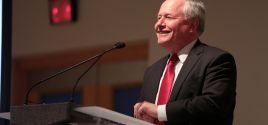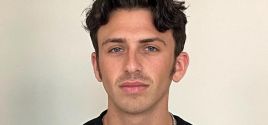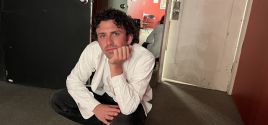My friend: the football fan who dreamed of being a doctorBy Kamran SiddiqueThe Guardian Aug. 15, 2006 |
Popular 
Bill Kristol: My Fellow White Americans Are 'The Enemy'

Israel Detains American Journalist for Reporting on Damage from Iran's Strikes [UPDATE]

Journalist Jeremy Loffredo Released After Four Days in Israeli Detention, Ordered Not to Leave

Chris Rufo Discovers Who is Flooding The Small Town of Charleroi, Pennsylvania With Haitian Migrants

WATCH: New Film 'Atrocity Inc' Exposes How Israel Lied About October 7th to Justify Genocide
 Waheed Zaman, 22, is a student arrested last week under the Terrorism Act. His best friend tells his story: At 12.53am on Thursday last week I received a text message. Even before reading it I knew that it was Waheed, my best mate, trying to find out whether I was awake. He asked if I wanted to meet with him for a midnight run to the chicken shop down the road for a burger. Waheed was always one for late-night takeaways and never hesitated to call when the hunger pangs kicked in. I was always the one he chose for company. We were like brothers. But I had eaten, so I passed and promised to meet him in the morning. I had no idea what was about to happen to him in the next hour. At 14.13 in the afternoon I received a phone call from my cousin who told me to watch the news. I did, and the emotions experienced during 9/11 and 7/7 came flooding back. I was scared - it was that time again. A time for feeling victimised, bowing your head on the tube and marketplaces, and defending the mosque. But at this point I was still unaware that the individuals accused were my own neighbours and friends. Within half an hour I received another phone call from a friend who broke the news that Waheed, my sidekick, had been arrested. Waheed Zaman is a 22-year-old student who is well-known around the community of Walthamstow, where everyone knows everyone's business. He is 6ft 2in, broad-built and he's invariably got a cheeky smile. Waheed lives round the corner from me, and we've known each other since childhood. As kids, we went to the same school, played football by the gates next to my house. We played knock-down ginger on the very streets that are now flooded with press. As teenagers, we'd spent hours on the sofa playing computer games, drinking cups of tea and emptying packets of cookies. We're now at Metropolitan University together. The guy is a real comedian and does amazing Chinese and Irish accents. He's the clown of our group. If he was working down the street and someone shouted "Osama bin Laden" he'd come up with some witty reply, and smile. A typical day for Waheed consisted of eating takeaway, and debating who Rafael Benítez should buy for Liverpool, the team he supported since childhood. He was such a keen fan we nicknamed him "Rafa". Like most young men our age Waheed liked to look good and dressed in a combination of western and Islamic attire. It was like two people in one: spiky gelled hair, sunglasses and a traditional beard. Him and my brother used to play football and come back crowing about how great they are. Waheed liked his work at Hamleys toy shop in the West End. His sunny disposition appealed to all backgrounds. He had many white, Asian and black friends. On the religious side, my friend was a spiritual man who preached about the basics of Islam: help people, be charitable, do community work. In December 2002 we both became more religious, and later grew we our beards together. It had nothing to do with politics. A lot of it was to do with seeing young Muslims around us into drugs, car theft, joy riding. No one was preaching the beauty of Islam. We thought: let us be the ones to start that off, to reform the community. We attended Tablighi Jamaat events at mosques across the country. Tablighi taught us how to bring Muslims and non-Muslims towards Islam, and how to rectify our lives. These are far from terror camps. His was elected head of the Islamic society [at university] last year because of his moderate ways. Contrary to the claims that is a biochemist, he studied biomedical science; he wanted to be a doctor, it was his lifetime ambition. Little did he know that those hopes would be destroyed. In two weeks he was to sit for exams which he had been revising tirelessly. I'm not surprised some sections of the media have claimed he was a biochemist - it fits with the picture they want to portray. Why should anyone be shocked that the Muslim community does not have faith in the media when they report like that? Despite the British judicial system stating that a person is "innocent until proven guilty", the press seems to have a different stance. Is the innocence of a person not compromised by them being named and shamed? The reputation of a man is tarnished when he is named, even if he only stands accused - not convicted - of a crime. Waheed's house, a stone's throw away from the Masjid-e-Umer mosque, has added to the negative portrayal. In the past few days the local mosque, a place of worship and reflection, has been presented in an inconceivably ill light. It has been mentioned that some of the suspects, including Waheed, attended this mosque, as if it was some sort of platform for suspected terrorists. Those who are familiar with the mosque will know it preaches integration. The mosque is used as a centre for learning and teaching the salient features of Islam to both Muslims and non-Muslims. After 9/11 and 7/7 Waheed was sceptical about whether Muslims could have been responsible. He watched conspiracy videos on the internet. He believed them and thought they made sense. Like most people in the world, he was anti-war. But his solution was: fight the enemies of Islam by showing them the real Islam, a religion of peace. Muslims condemn attacks on civilians wherever they are and work hard with the authorities to fight terrorism. But in return they see that their mosques and scholars are still criticised. The thought crosses the mind that the Qur'an itself may one day be called a terrorist book. But evil has no religion. Do I think there is any possibility in the world Waheed would be involved? Could he have kept a secret? Could there have been a side to him that someone who spent most of the day, every day, with him, could not see? My answer is no. I bet my life on it. |



